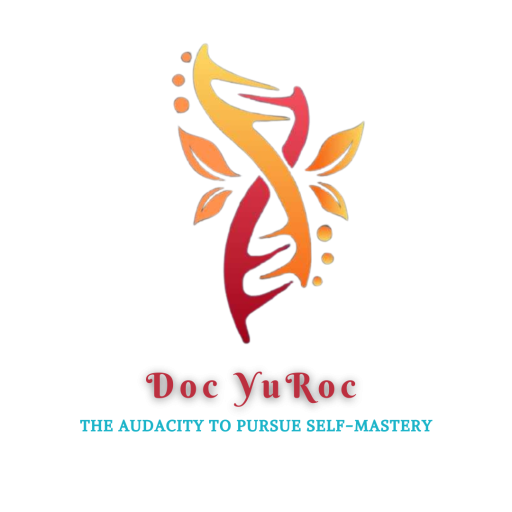
There’s a shift happening in the healing world, and I’m in the middle of it.
After years of teaching, supervising, building programs, and contributing to platforms that weren’t fully mine, I made a decision that was both terrifying and necessary:
I left.
I stepped away from roles, titles, and institutions that gave me visibility and stability, but not full alignment.
Because what I’m building now isn’t just a course or a certification. It’s a vision. A movement. A home for the work that’s been living in my bones for years.
And it all centers around this question:
What is therapy, really?
Therapy is not just a feeling. It’s not just depth. It’s not just healing.
Therapy is a regulated profession, and in many cases, a legal designation.
And right now, we’re seeing the word “therapy” used in all kinds of spaces—sometimes responsibly, but increasingly, confusingly.
People are calling it breathwork therapy. Coaching therapy. Journaling therapy. Scene therapy. Even BDSM therapy.
And here’s why that’s a problem:
Just because something is therapeutic doesn’t mean it is therapy.
Let’s talk about it.
- Massage therapy
- Physical therapy
- Occupational therapy
- Speech therapy
- Psychotherapy
These are all governed by specific bodies. They involve:
- Regulated scopes of practice
- Ethical codes and licensure
- Supervision requirements
- Liability and documentation
- Clear accountability if harm occurs
They are not just healing experiences. They are legal roles with professional responsibility attached.
When someone says “BDSM Therapy,” it sounds official. It sounds like a recognized practice. It sounds like a licensable discipline.
But there is no regulation, no licensing body, and no defined scope of practice for kink work—doms, subs, facilitators, scene holders. Nothing. Yet…
Which means calling it therapy can be incredibly misleading.
Especially to people seeking trauma support, who may believe that “therapy” automatically means: Training, Ethical oversight, Clinical accountability, Insurance or legal protection.
That’s simply not true across the board.
And here’s where it gets even more complex:
Globally, the definition of therapy is even less clear.
In some countries, there is little to no regulation around who can call themselves a therapist. In others, you can open a practice with no clinical training at all. The word means different things depending on where you are, who you’re speaking to, and what kind of help you’re seeking.
So we’re not just dealing with confusion, we’re dealing with risk.
That’s why I don’t use the term “BDSM Therapy.” I created Therapeutic BDSM™ to be something different.
It’s not therapy. It’s not a free-for-all either.
It’s a structured, intentional, trauma-informed intervention that:
- Honors collaboration between clinicians and kink professionals
- Respects ethical boundaries and clear roles
- Supports healing without pretending to be something it’s not
And yes, it can be profound. Transformative. Resourcing. But that’s because of its integrity, not its name.
We don’t need to keep stretching the word therapy until it loses all meaning.
What we need is clarity. What we need is professionalism. What we need is consent, not just in play, but in representation.
People deserve to know what they’re walking into. Let’s make sure our language reflects that.
So what do I offer?
A space where healing doesn’t just happen in theory, it happens through power, sensation, integration, and consent.
Where BDSM becomes more than a set of tools, it becomes a somatic, embodied language for trauma recovery, identity reclamation, and personal transformation.
Where clinicians, kink professionals, and educators work together, not in silos, to create safer, more effective, and more liberated paths to healing.
What I offer is a collaborative, trauma-informed, somatic intervention model rooted in a framework I developed called:
Self-Reconciliation Therapy™ (SRT)
SRT is about helping people return to themselves, to regulate their nervous systems, to reclaim power from pain, and to reconcile the fractured parts of who they are through structured, intentional experiences.
Therapeutic BDSM™ exists within the SRT framework as a deeply ethical and embodied practice.
Last month, I graduated the first cohort of clinicians, pros, and educators trained in this model. And their feedback confirmed everything I’ve felt in my bones for years:
Thank you, Doc, for creating and bringing this modality to the forefront. Your work has been truly transformative, providing a much-needed framework for healing that respects clients’ autonomy, emotional safety, and somatic experiences. The integration of trauma-informed care and ethical BDSM practices is groundbreaking, and I’m grateful for the opportunity to learn from it. This training has opened new perspectives for me, and I’m excited to apply these principles to support clients in their self-reconciliation journeys.” ~Clinician~
And now, I’m opening the door for others to explore this work, too.
If you’re curious…
I invite you to sign0-up for our next free pop-up info session on:
Sign-up HERE to get info on our next pop-up session happening in July.
We’ll explore:
- The entire Ecosystem of Excellence
- What Therapeutic BDSM™ is and isn’t
- The role of Self-Reconciliation Therapy as a healing framework
- The unique collaborative model behind TBCN
- The Kink Professional Standards Alliance
- KINNECT
- The Journal of Kink and Community and more…
This is for clinicians, kink professionals, educators, and any soul who knows that healing cannot be confined to a couch, or a box.

Recent Comments